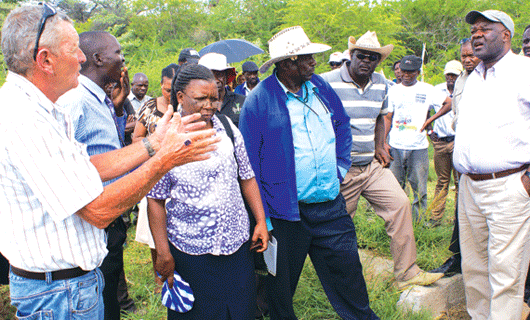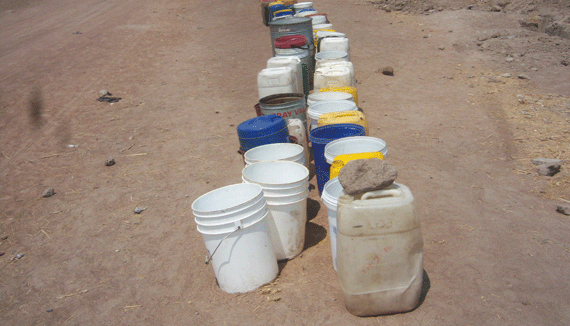
VILLAGERS in some parts of Matabeleland South province are surviving on wild fruits while others are forced to sell off their livestock to middlemen for a song as hunger bites. LUYANDUHLOBO MAKWATI OWN CORRESPONDENT
When a Southern Eye news crew visited Marula, Mangwe and Solusi on Tuesday, villagers and farmers bemoaned food shortages blaming them on poor harvests due to the drought.
They said the situation had been compounded by the collapse of irrigation schemes such as Somunene near Solusi.
The area is known for cattle ranching, but water and pasture shortages have seen desperate villagers off-loading their cattle to middlemen for as little as $100. Middlemen in turn sell them for a profit to abattoirs in Bulawayo.
Khulu Dlamini, a farmer whose farming activities depended on Somunene Irrigation Scheme, said there had been serious food shortages since water was cut off.
“Since Zinwa (Zimbabwe National Water Authority) stopped pumping water to us in May, after being cut off by Zesa, we have had no food and there is no way we can produce and sell since this was our only source of livelihood. We know that the government scrapped off debts, but Zinwa has not restored service to us,” said Dlamini.
One of the leading commercial farmers and ranchers in the area, Charlie Ross, said the Somunene community was in a deplorable state because of water shortages.
“Since water was cut, there is no food in this area and people are surviving the hard way,” said Ross.
- Chamisa under fire over US$120K donation
- Mavhunga puts DeMbare into Chibuku quarterfinals
- Pension funds bet on Cabora Bassa oilfields
- Councils defy govt fire tender directive
Keep Reading
“I tried to clear the debt with Zesa which amounted to $3 000 so that people would farm in this irrigation scheme and get food, but my efforts for the people of Somunene are in vain. It is hard for the general populace to get food and any source of income, leading people to survive with whatever they come across on that particular day,” he said.
Ross bemoaned lack of proper agricultural equipment used at the irrigation scheme saying it used to produce about eight tonnes of maize every year which could feed the whole community, but the type of irrigation used was no longer compatible with the soil and as a result, they had struggled to produce enough food to sustain them as a village.
“When we started farming this land in 1968, it used to produce about eight tonnes, but it’s now hard to produce adequate food because the soil has been leached over the years,” he said.
Hunger has also taken its toll in Marula with people leaving the area after failing to get proper value for their cattle since middleman allegedly swindled them.
One of the disgruntled villagers, Sizwile Ncube, charged that middlemen came on behalf of abattoirs.
“Everyone knows that our areas are not arable and we survive through cattle ranching. It is sad that because of the drought, people are taking advantage of us,” said Ncube.
Deputy minister of Agriculture responsible for livestock, Paddy Zhanda, who toured the area together with Southern Eye, said the government did not approve of the unscrupulous behaviour of middlemen and abattoirs as they were short-changing villagers.
“As government, we do not condone such behaviour. We will not allow people to short-change villagers. It is important for villagers to be paid accordingly as stipulated and gazetted by the government,” Zhanda said.










